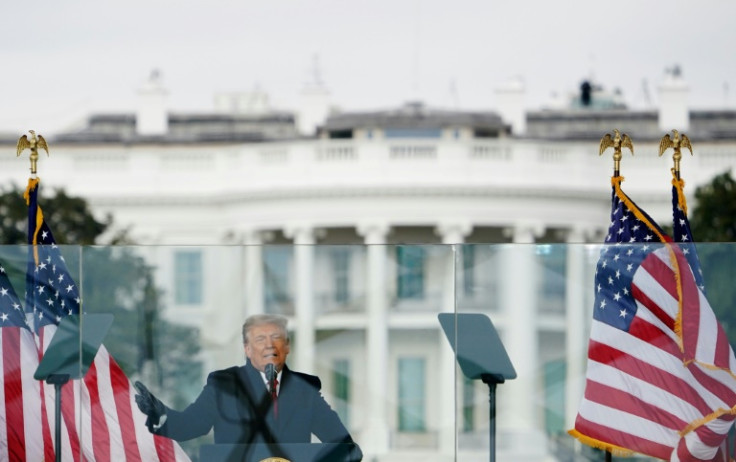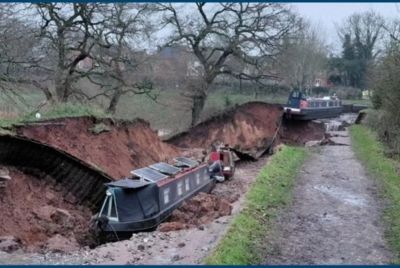'This Was No Mistake, It Was Manipulation': BBC Faces Public Fury Over Trump Scandal
Resignations ignite debate over bias, integrity, and accountability at the BBC

The BBC is facing a wave of public anger after its Director-General Tim Davie and News Chief Deborah Turness resigned amid accusations that a documentary misrepresented Donald Trump's January 6 speech.
While the broadcaster framed the incident as an 'editorial error', many online have accused the BBC of deliberate distortion, saying the edit was 'manipulation, not mistake'.
The reaction has unleashed a storm of criticism on social media, where users, commentators and media analysts are questioning whether Britain's most trusted news institution can still claim impartiality.
'This was no mistake, it was manipulation,' one user wrote on X (formerly Twitter), a sentiment echoed across hundreds of posts.
The phrase quickly became shorthand for the frustration many Britons expressed over what they see as an erosion of accountability in public broadcasting.
Among the most widely shared reactions was one post arguing that the footage 'wasn't an editing oversight but a deliberate act to mislead'.
Another described the incident as 'a low point for public broadcasting', while a third called it 'a complete betrayal of journalistic ethics'.
Still, not all comments were condemnatory. Some defended the broadcaster's response, noting that 'the BBC made a mistake, yes – but at least it admitted fault. Accountability matters.'
BBC director general Tim Davie and News CEO Deborah Turness resign after being exposed for deceptively editing President Trump's Jan 6th speech.
— Simon Hayes (@Hayess5178) November 10, 2025
The BBC lied - they doctored a recording.. This was no mistake, it was manipulation. https://t.co/hN547vwx6q pic.twitter.com/6kVVK6Ouk4
How far the BBC has fallen. They used to be the most credible source of news for most of the developing countries
— Guy Nohra (@GuyNohra) November 9, 2025
Public Reaction Reflects Wider Crisis of Trust in Media
The controversy follows days of scrutiny after a Panorama documentary allegedly spliced separate parts of Trump's 6 January 2021 address to appear as a continuous call to action. Internal reviews reportedly found that the sequence omitted sections where Trump urged supporters to protest peacefully, creating what critics claim was a misleading narrative linking his remarks to the Capitol riots.
Donald Trump Jr. also entered the debate last week, blasting The Telegraph for its coverage of the controversy.
The newspaper had published an article titled 'Exclusive: BBC "doctored" Trump speech, internal report reveals', which he dismissed as false. Taking to X, Trump Jr. wrote: 'The FAKE NEWS "reporters" in the UK are just as dishonest and full of shit as the ones here in America!!!!'
The resulting backlash has not been limited to political circles. Online forums, talk shows and comment sections have been flooded with complaints that the BBC has abandoned its founding principle of impartiality.
Analysts say the intensity of the reaction underscores a broader collapse in confidence in mainstream journalism.
According to the Reuters Institute's Digital News Report 2024, overall trust in news among UK audiences has remained low, about 36 per cent, roughly 15 percentage points lower than before the 2016 Brexit referendum. The same report observed that distrust is particularly pronounced among younger audiences and those who primarily access news via social media platforms.
BBC Leadership Under Pressure to Rebuild Credibility
The dual resignation of Davie and Turness has prompted the BBC Board to launch a full review of editorial oversight. In an email to staff, Davie said he was 'taking ultimate responsibility' for the incident but stressed that the organisation 'remains committed to accuracy, balance and fairness'.
Despite the apology, the reaction has been unforgiving. The BBC's admission of error has done little to stem the growing scepticism from viewers, commentators and political observers who see the controversy as symptomatic of deeper institutional problems.
Many critics argue that the corporation's recent missteps — from its handling of politically sensitive topics to perceived inconsistency in enforcing editorial standards — have eroded the trust it once commanded almost by default.
For decades, the BBC's strength has rested on its image as an impartial arbiter of truth. Yet the Trump footage scandal has exposed how fragile that reputation has become in an era of intense public scrutiny and digital transparency.
In media circles, the resignations are being interpreted less as isolated acts of accountability and more as evidence of a structural crisis that extends beyond one newsroom or programme.
For now, the network faces its most serious reputational challenge in decades, one that extends far beyond a single programme. As one viral post put it, summing up the prevailing mood: 'If even the BBC can't tell the truth, who can?'
© Copyright IBTimes 2025. All rights reserved.


















